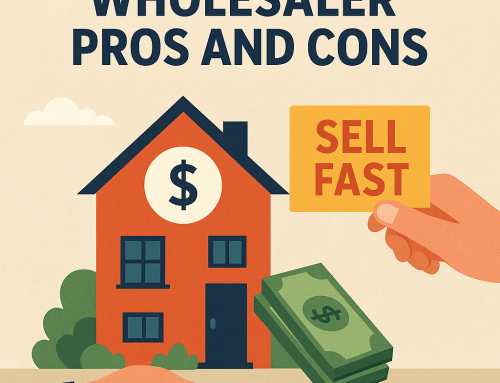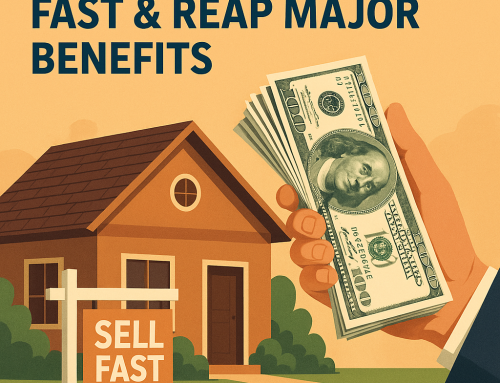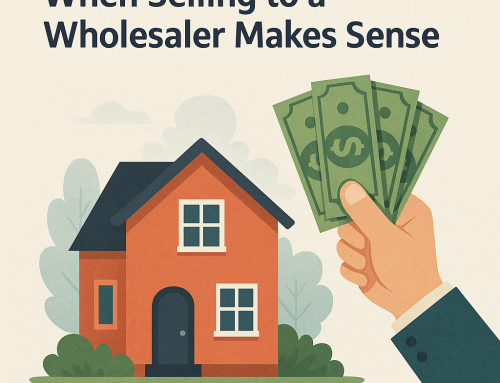- Understanding For Sale by Owner
- Advantages of Selling Your Home as FSBO
- Challenges of For Sale by Owner
- Evaluating Your Motivation to Sell Quickly
- Alternatives to For Sale by Owner
- Conclusion
When considering the prospect of selling your home quickly, many homeowners contemplate the option of listing as “For Sale by Owner” (FSBO). This approach offers the allure of potentially avoiding agent commissions—often ranging from 5% to 6% of the sale price—and retaining more profit. However, is this method effective for all homeowners? Let’s delve into the pros and cons of FSBO, and whether it truly allows you to sell your home fast.
Understanding For Sale by Owner
For Sale by Owner means that the homeowner manages the sale of the property without the assistance of a real estate agent. While this may seem straightforward, it requires a keen understanding of the market, effective marketing strategies, and negotiation skills. Homeowners must also be prepared for the substantial commitment required to manage showings, paperwork, and buyer communication.
Advantages of Selling Your Home as FSBO
1. Cost Savings: Perhaps the most appealing aspect of FSBO is the potential savings. By avoiding agent fees, homeowners can keep a larger portion of the sale price. This aspect is especially beneficial if you’re looking for a quick sale and want to maximize your profit.
2. Control Over the Sale: Being in charge allows homeowners to set their timeline, choose how to market their property, and negotiate directly with buyers. This level of involvement can lead to a more personalized selling experience.
3. Flexibility: When selling cash for home, FSBO allows more flexibility in terms of pricing and closing dates. Homeowners can adapt to buyer needs, potentially speeding up the sale.
Challenges of For Sale by Owner
1. Limited Market Exposure: One of the biggest hurdles for FSBO sellers is limited access to listing services like the Multiple Listing Service (MLS). Without this exposure, the home may reach fewer potential buyers, which can delay or complicate the sale.
2. Time Commitment: Selling a home can be an overwhelming task, especially for someone unfamiliar with real estate processes. FSBO sellers must handle everything from marketing to paperwork, which can take significant time and effort.
3. Negotiation Skills: Many homeowners may feel confident in negotiating with friends or family but may find the stakes much higher when dealing with actual buyers. Lack of experience might result in unfavorable outcomes, impacting both the price and sale efficiency.
Evaluating Your Motivation to Sell Quickly
If your primary goal is to sell your home fast, consider your reasons for this urgency. Are you relocating for a job, facing financial difficulties, or simply ready for a change? Understanding your motivation will help determine if FSBO is the best route or if you might want to explore other options, like selling to an investor for cash.
Alternatives to For Sale by Owner
For those needing a quicker turnaround, there are alternative avenues to consider:
1. Real Estate Investors: Selling directly to investors who offer cash for home transactions can often lead to fast closings and fewer hassles. This route tends to be smoother since it circumvents the complexities of traditional sales.
2. Real Estate Agents: While employing an agent incurs costs, their expertise can streamline the process, ensuring the home is priced correctly and marketed effectively. Agents also handle negotiations and paperwork, allowing you to focus on your next steps.
3. Online Platforms: Some platforms allow you to list your home for a reduced fee compared to traditional real estate services. This combines some benefits of FSBO while still providing more exposure than a standalone FSBO listing.
Conclusion
Ultimately, whether FSBO is worth it depends on your knowledge of the real estate market, your ability to commit time and energy, and your specific selling goals. If selling your home quickly is a top priority, weighing the benefits of selling outright for cash against the DIY route is crucial. Engage in thorough research and consider consulting professionals to ensure that you make the most informed decision. Each homeowner’s situation is unique, and understanding the trade-offs will empower you to choose the best path forward.




